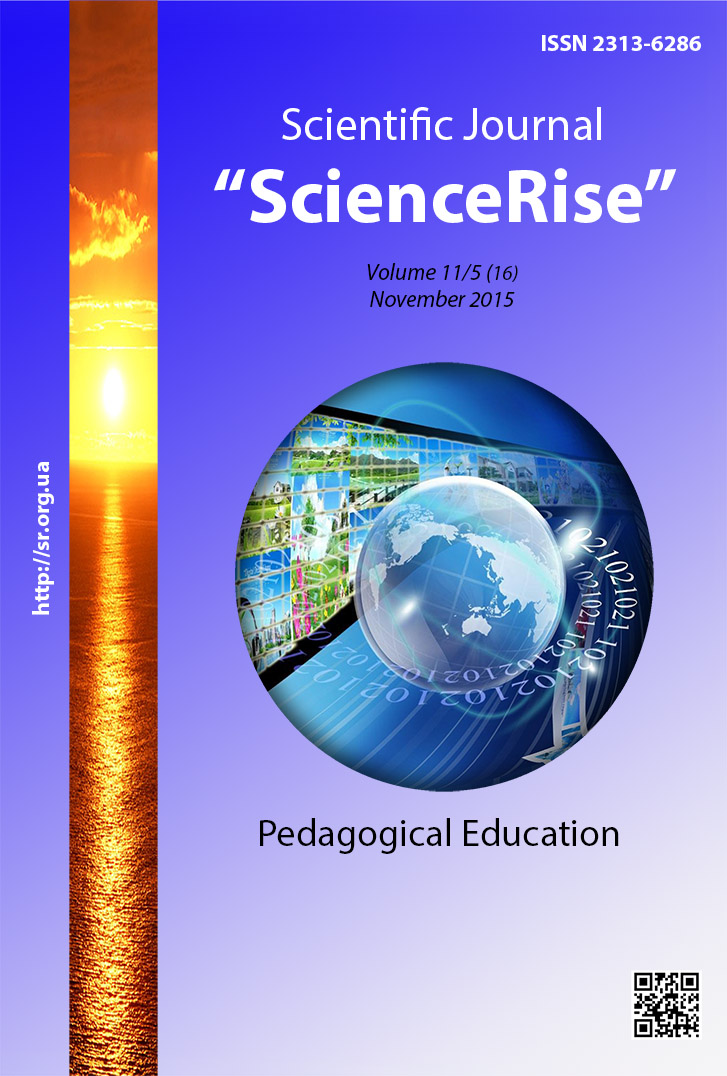Historical basis of formation and development of ukrainian postgraduate pedagogical education
DOI:
https://doi.org/10.15587/2313-8416.2015.54641Keywords:
postgraduate pedagogical education, educational analysis, professional training, further training, pedagogical staffAbstract
The article describes the results of conducted analysis of Ukrainian postgraduate pedagogical education development conditioned by specificity of modern social development of Ukraine. The overview of current pedagogical literature testifies about increased attention to the process of educators’ further training, the possibilities of postgraduate pedagogical education system. As a result of review and generalization of scientific problems of educators’ further training in Ukrainian pedagogical literature selected a number of efficient ideas
References
Bуuleten III Vserosiуskoho zуizdu Spilkу pratsivnуkiv osvitу 1–8 veresnуa 1921 r (1921). Moscow, 20.
Bуulleten Narkomprosa RSFSR (1934). 1, 50.
Polozhenye o rayonnom pedahohycheckom kabynete rayonnoho otdela narodnoho obrazovanyya (1938). Covetckaya pedahohyka, 12, 1–37.
Medvid, L. A. (2003). Istoriуa natsionalnoуi osvitу i pedahohichnoуi dumkу v Ukraуini. Kуiv: Vikar, 335.
Cuxomlynckyy, V. A. (1973). Pazhovor c molodym dyrektopom shkoly. Moscow: Procveshchenye, 78.
Krysyuk S.V. (1995). Stanovlennya ta rozvytok pislyadyplomnoyi osvity pedahohichnykh kadriv Ukrayiny (1917-1941 rr.) / S.V. Krysyuk – K. : UIPKKKO,– 174 s.
Maslov, V. Y. (1990). Theoria y metodyka orhanyzatsyy nepreryvnoho povyshenyya kvalyfykatsyy rukovodyteley shkol. Kyiv: MNO USSR, 259.
Oliynyk, V. V. (2000). Bezperervna osvita. Svitlo, 3 (17), 11–15.
Downloads
Published
Issue
Section
License
Copyright (c) 2015 Oльгa Фeдopiвнa Гук

This work is licensed under a Creative Commons Attribution 4.0 International License.
Our journal abides by the Creative Commons CC BY copyright rights and permissions for open access journals.
Authors, who are published in this journal, agree to the following conditions:
1. The authors reserve the right to authorship of the work and pass the first publication right of this work to the journal under the terms of a Creative Commons CC BY, which allows others to freely distribute the published research with the obligatory reference to the authors of the original work and the first publication of the work in this journal.
2. The authors have the right to conclude separate supplement agreements that relate to non-exclusive work distribution in the form in which it has been published by the journal (for example, to upload the work to the online storage of the journal or publish it as part of a monograph), provided that the reference to the first publication of the work in this journal is included.

